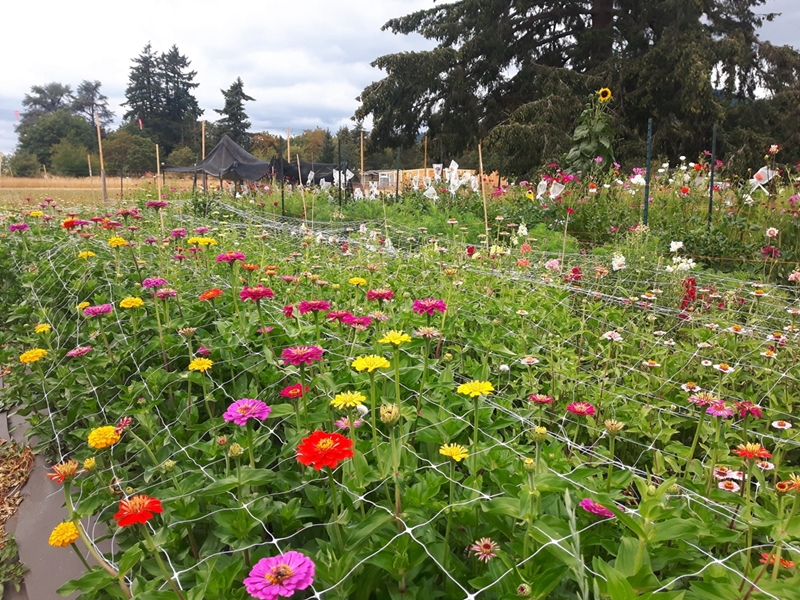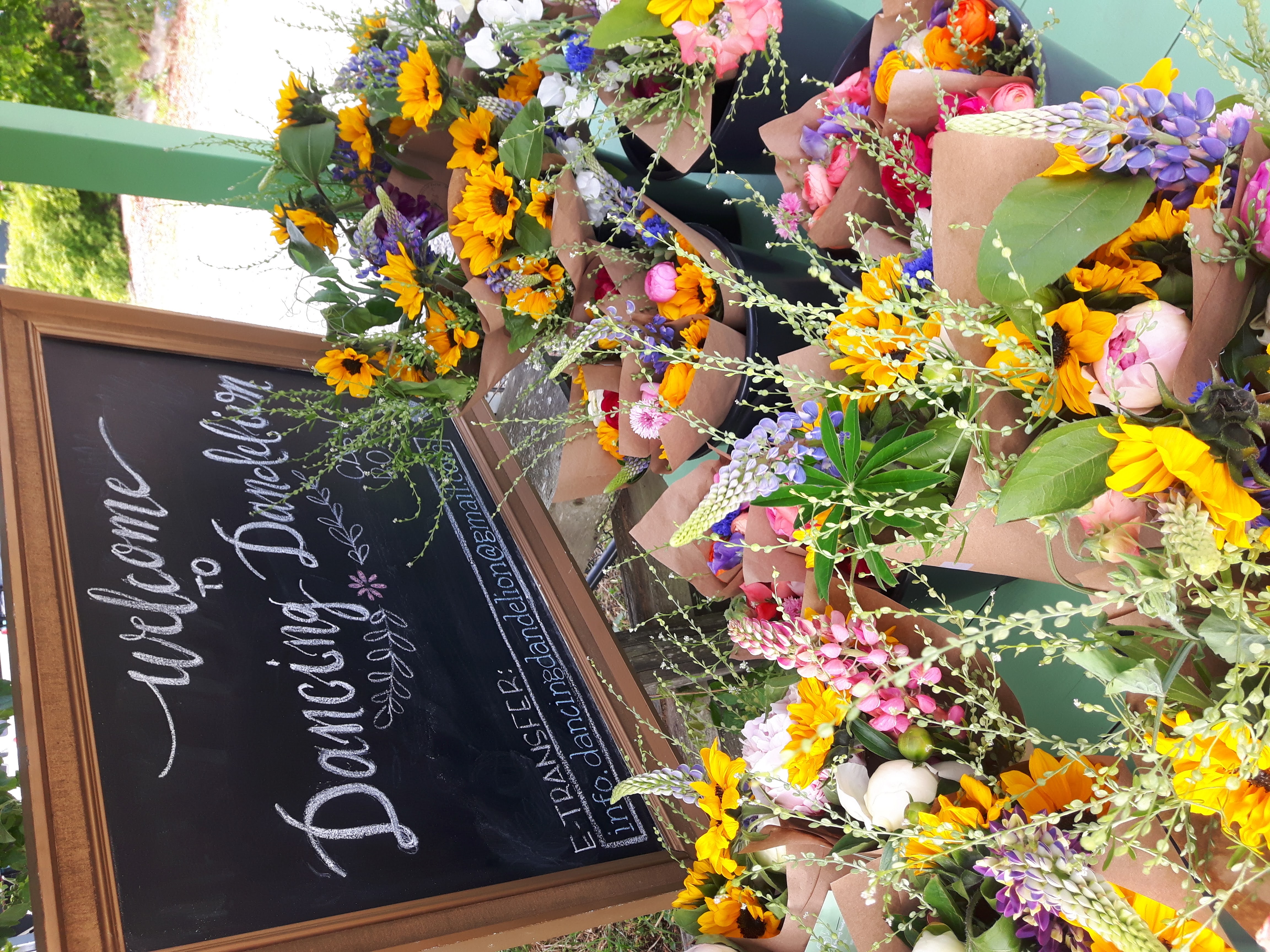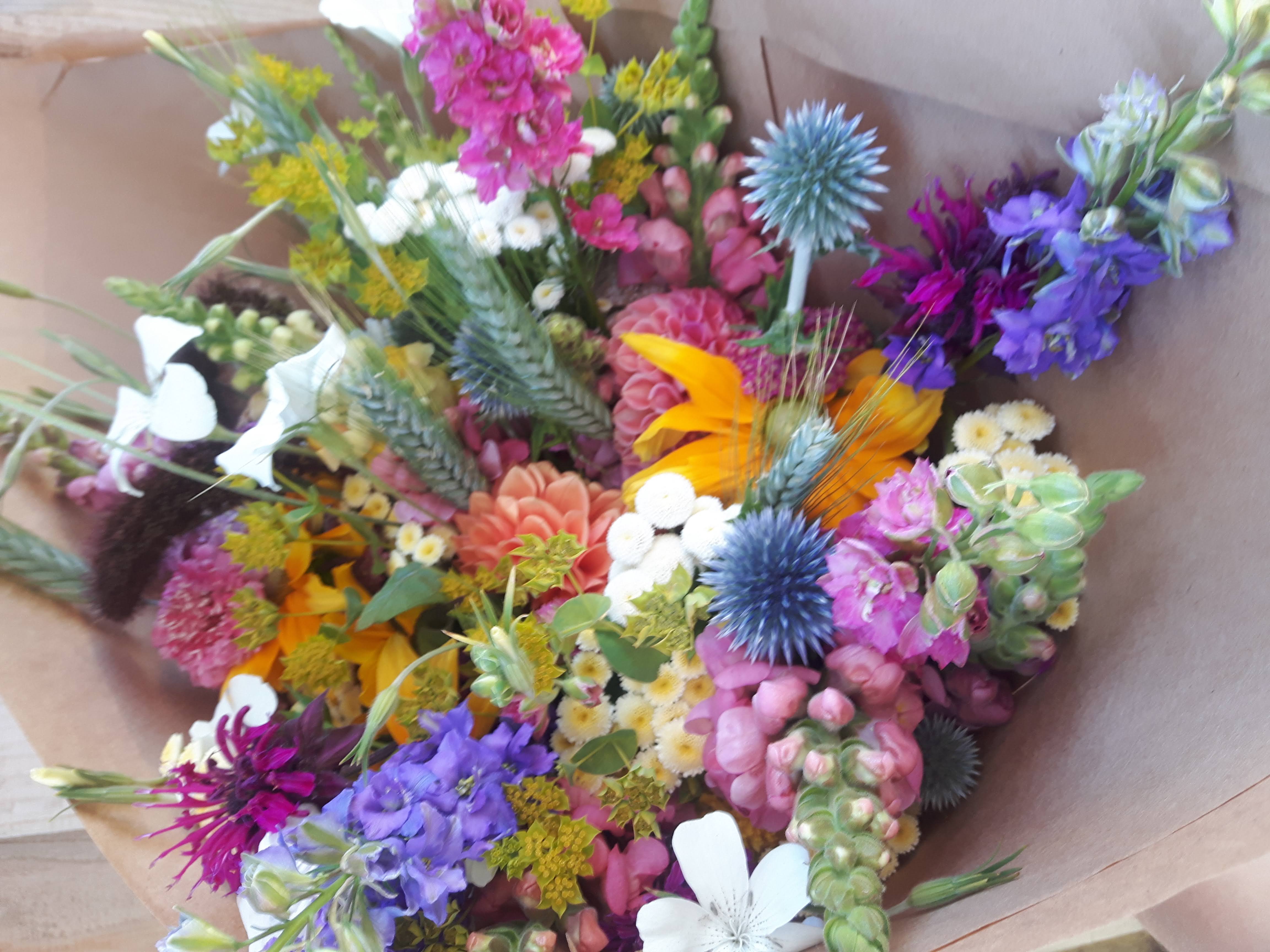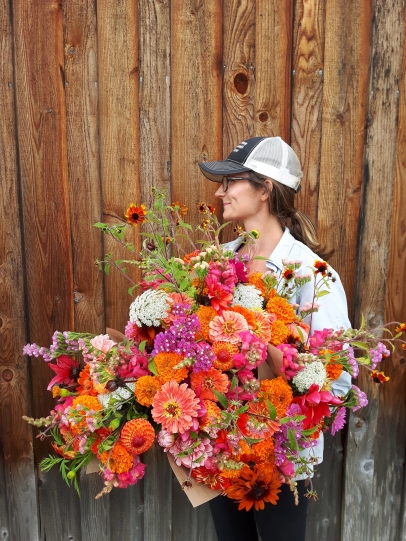Dancing Dandelion Farms
Kailli Pigott of Dancing Dandelion Farms can get anyone excited about flowers. Her passion for blooms is evident in how she talks about growing them on her farm, an interest that began as a child growing up on an apple and cherry orchard in the Okanagan Valley—she even had her own little garden corner where she grew radishes, beans and peas. That interest continued through high school as she studied biology, discovering she had a knack for categorizing, sorting and classifying.
Kailli continued to pursue the study of living things in university—though she wasn’t without doubts during her first year, when she found she didn’t enjoy the biology classes she was enrolled in or the general courses she had to take. “I went into life crisis mode. Had I made a terrible choice pursuing biology?” Kailli remembers. But then she enrolled in a botany program, and suddenly it all made sense. “I’d found my true love—plants! Anybody who knew me at the time can attest to the fact that plants were the one and only thing I would talk about. I nearly bored most people at parties to death,” she says.

.jpg)
Kailli now has 15 years of experience working with and studying plants, a Bachelor of Science in Plant Biology, a Certificate in Permaculture Design, a Sustainable Urban Horticulture Certificate from the University of Guelph, and a Basic Floral Design Certificate from the Floral Design Institute based in Oregon. She owns and operates Dancing Dandelion Farms with her husband Zach, who has a background as a power engineer. “His main roles on the farm include fixing all the fires and problems, maintaining our drip irrigation systems and mowing/weeding,” Kailli explains. “Zach is also a strong believer in the healing properties of nature and living in the moment. Zach can be found in the fields tackling the latest obstacles on the farm, or just taking a rest to watch a honey bee cruise from flower to flower.”
While Kailli and Zach are passionate about plants, they didn’t begin farming with the intention of growing flowers. “I always say flower farming found us,” says Kailli. In their first season, they enrolled in a mentorship program with the Young Agrarians, and their mentor saw that their plan primarily included vegetables, but also dahlias, as the previous farm owners left behind their tubers as a gift for the couple. Their mentor suggested they grow more flowers, as there were very few flower growers in the area at the time.

They took his advice and added 25 more flower species to their crop plan, soon discovering that people loved their flowers and flocked to their stand at the Duncan Farmers’ Market that summer. Not only did the customers love them—so did Kailli and Zach. “A part of me started to realize I might like them even more than the vegetables. Designing and arranging them made me happy and it was a creative side of myself that I’d never explored. I’d always thought of myself as a scientist, not an artist, and this was an exciting time for me,” recalls Kailli.
Kailli quickly became known as “The Flower Lady,” and has created thousands of bouquets and arrangements from their more than 100 varieties of cut flowers. The farm grows an assortment of blooms, including large quantities of dahlias, ranunculus, peonies, sunflowers, feverfew and statice. “We strive to grow a diverse array of products that complement one another on the landscape,” Kailli explains. “Our flowers are also chosen to provide pollinators with a steady supply of pollen and nectar throughout the season. We also choose crops that have a long span of maturity or that can be replanted successionally for continuous harvest throughout several months of the year.”
So what exactly goes into being a flower farmer? A little sundress frolicking, a lot of weed picking, and too much computer working, according to Kailli. “A lot of people think flower farming is a dreamy profession of sundresses and sunhats galloping through the fields picking roses all day long. But I usually tell them that that is only a part of flower farming—maybe 10 to 20%!” Kailli says with a laugh. “The remaining 80% is a lot of bending over, washing buckets, working in extreme heat, cold, wind and rain and sometimes dealing with crop failure, insects and disease. Flower farming involves getting your hands dirty and pulling out thousands of weeds.” She says that unfortunately, it also involves a lot of computer work. But ultimately, it’s all worth it, because, “coming in with a heaping bucket of sunflowers always puts a smile on your face,” she says. “The flowers make even the hardest days worthwhile, and they still make me giddy. It’s pure magic.”
While Dancing Dandelion Farms has previously provided flowers for weddings and events, their focus now is to provide flowers for everyday joy. “My goal is to make flowers easily accessible to our community and add a little sparkle and romance to people’s lives,” explains Kailli. “There’s a lot of darkness in the world, and if we can do one small part to brighten someone’s day then I did my job,” she continues. “I often say that flowers are ‘more than just a pretty face.’ Culturally, flowers are found in all aspects of our lives, from the most mundane to the most important, life-changing events. Whether it's a kitchen table bouquet, a bountiful gift to the gleeful new parents of a newborn, or a wreath to mourn the loss of a loved one at a funeral, flowers are found everywhere. Displaying cut flowers and greenery inside our homes is our way of bringing the outdoors in, when we can’t always be outside.”







